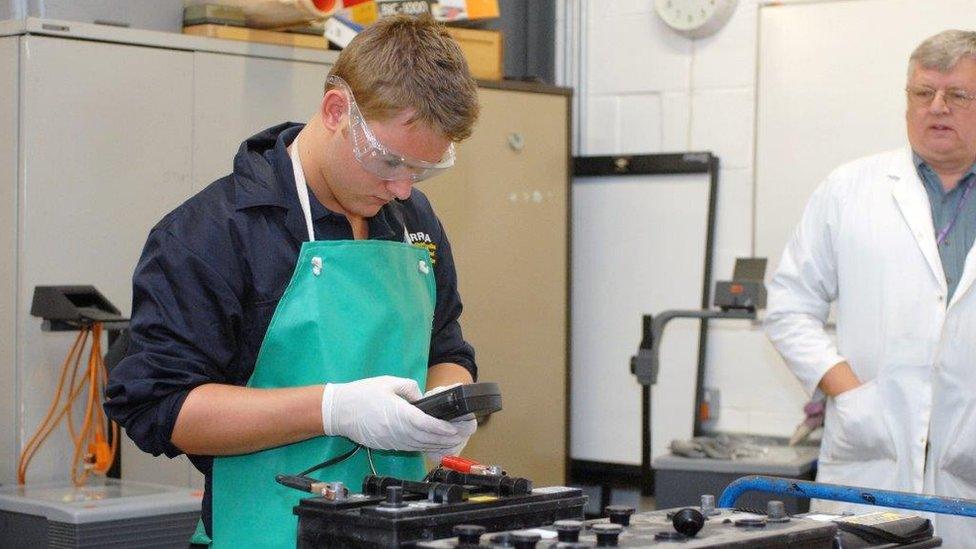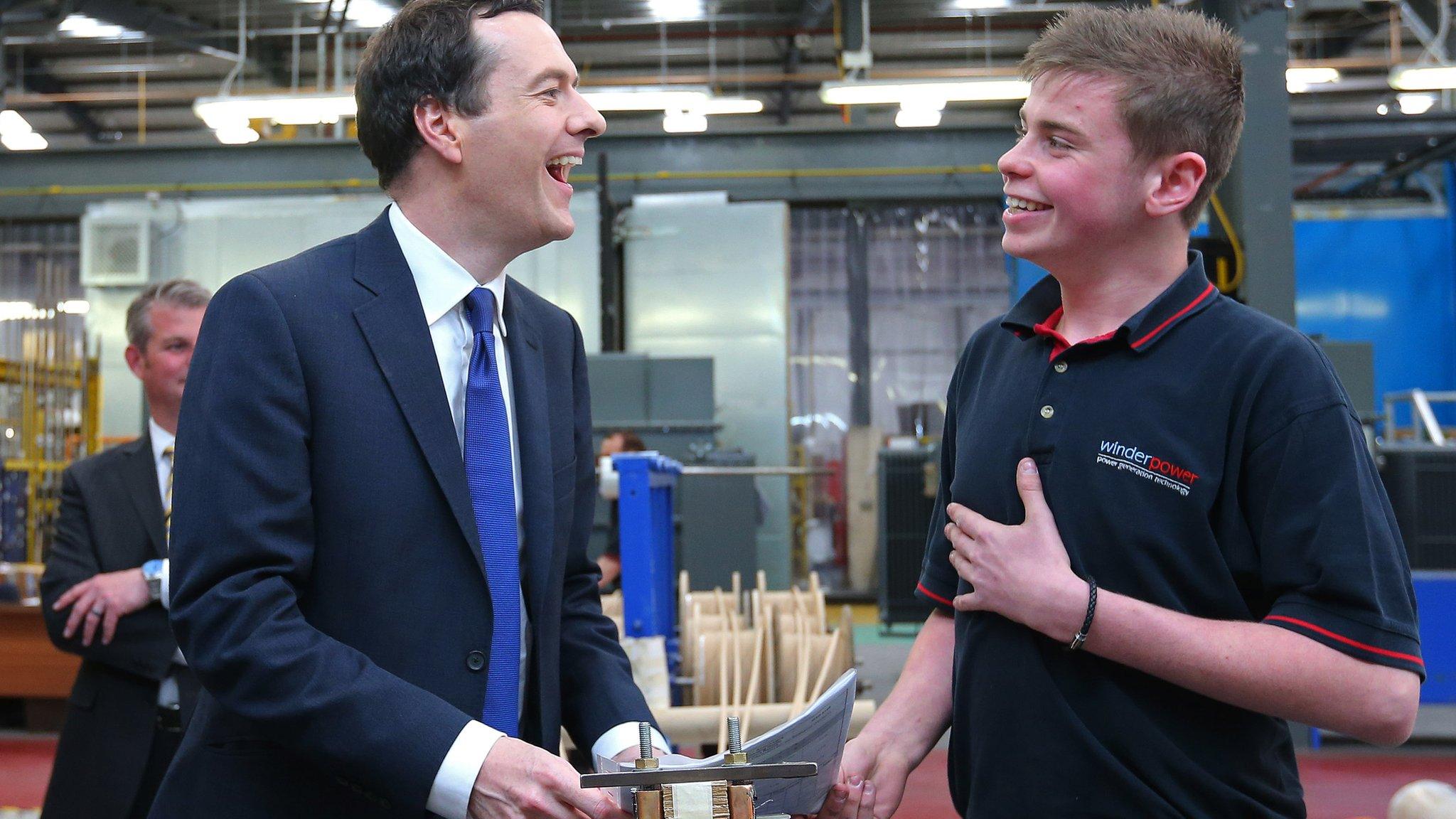Apprenticeship 'U-turn' will help poorest teenagers
- Published

The government says the apprenticeship levy will boost skills training in England
Updated government plans for apprenticeship funding in England have been welcomed by critics who feared they would exclude the poor.
From April 2017, a new levy on company payrolls will help to double government spending on apprentices, say ministers.
Under the scheme, businesses will be able to use vouchers from the levy to pay for apprenticeships.
Labour says the revisions are a U-turn by ministers, after a "huge outcry" and a "sustained campaign".
From next April, firms will pay into the apprenticeship levy, a new tax based on the number of people on their payroll in England.
And from May they will be able to draw down vouchers from the levy to fund apprenticeships.
'A leg-up'
The government says the aim of the £2.5bn apprenticeships plan is to boost the number of people of all ages able to gain high-quality skills and experience, and to improve the overall skills of the workforce.
Skills Minister Robert Halfon said the latest changes would "boost our economic productivity, increase our skills base and give millions a leg up on the ladder of opportunity".
Business critics of the scheme had originally feared it would be inflexible, while colleges said that amendments announced during the summer recess would have seen cuts of up to 50% for apprenticeships for the poorest teenagers.
Businesses were also concerned that a demand that they spend their vouchers within 18 months did not fit with their existing recruitment and training cycles.
The latest changes include:
an extra 20% of funding to train 16- to 18-year-olds
more money for employers to train apprentices in the poorest parts of England
more money for employers who take on apprentices under 24 years old who are in care or who have special educational needs
24 months for businesses to spend the vouchers.
The detailed plans gained support from TUC General Secretary, Frances O'Grady, who said the levy would give apprenticeship funding "a welcome boost".
David Hughes, chief executive of the Association of Colleges, said it was clear the government had listened but warned that these "big shifts in the apprenticeship programme... will need sensitive and watchful handling".
Labour's shadow minister for apprenticeships said the government "have had to make a major U-turn to their original proposals".
"It is a credit to the new minister that he recognised that this needs to be done to preserve any credibility for the government's social mobility position," said Gordon Marsden.
"We need to see the detail though and whether a year of transitional funding for disadvantaged areas will be enough."

Detail of the plans has gone some way to allay concerns, say colleges and employers
Neil Carberry, CBI director for people and skills, said businesses would be "encouraged" by the announcement but said that major questions still remained about the scheme's readiness.
Businesses also worry that the scheme will draw funding away from other types of training, says the CBI - for example graduate schemes and work placements.
"The lack of flexibility in spending through the levy remains a genuine concern to companies," said Mr Carberry.
Terry Scuoler, chief executive of the manufacturers organisation the EEF, said the announcement "clearly reflects our sector's concerns and is a significant step forward".
"Timing is now all important. With a shrinking window of opportunity to prepare for the levy, government must carefully prepare a final implementation plan while remaining mindful that employers as well as government need time to prepare for the sea change in apprenticeship funding next year," Mr Scuoler added.
- Published12 August 2016

- Published25 November 2015

- Published21 August 2015
